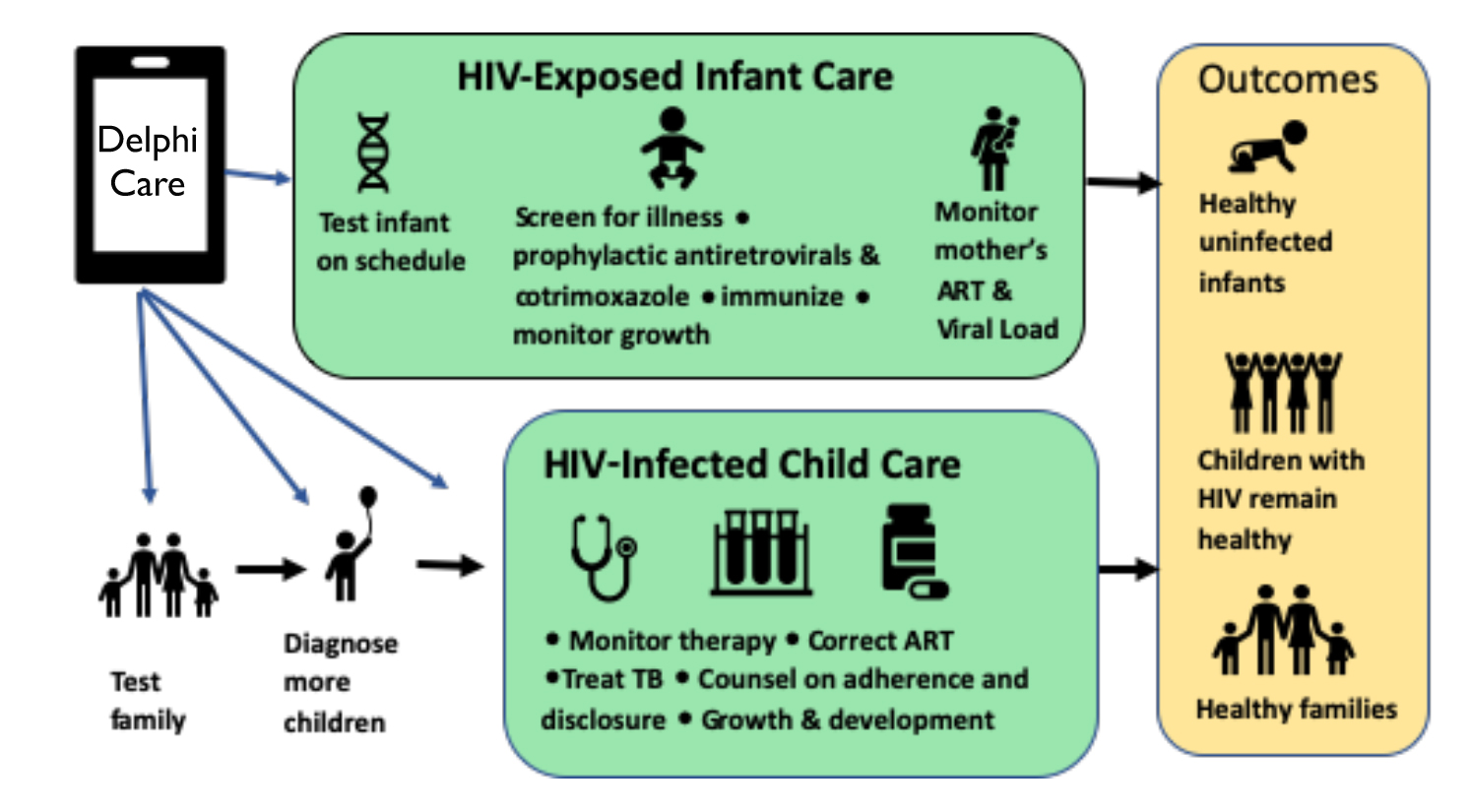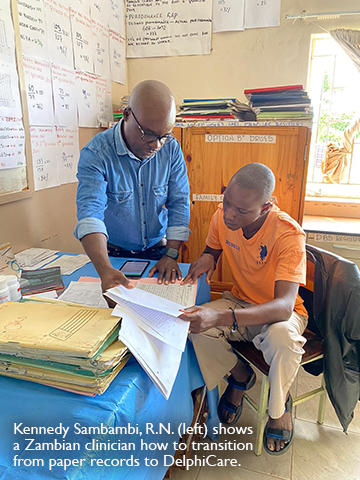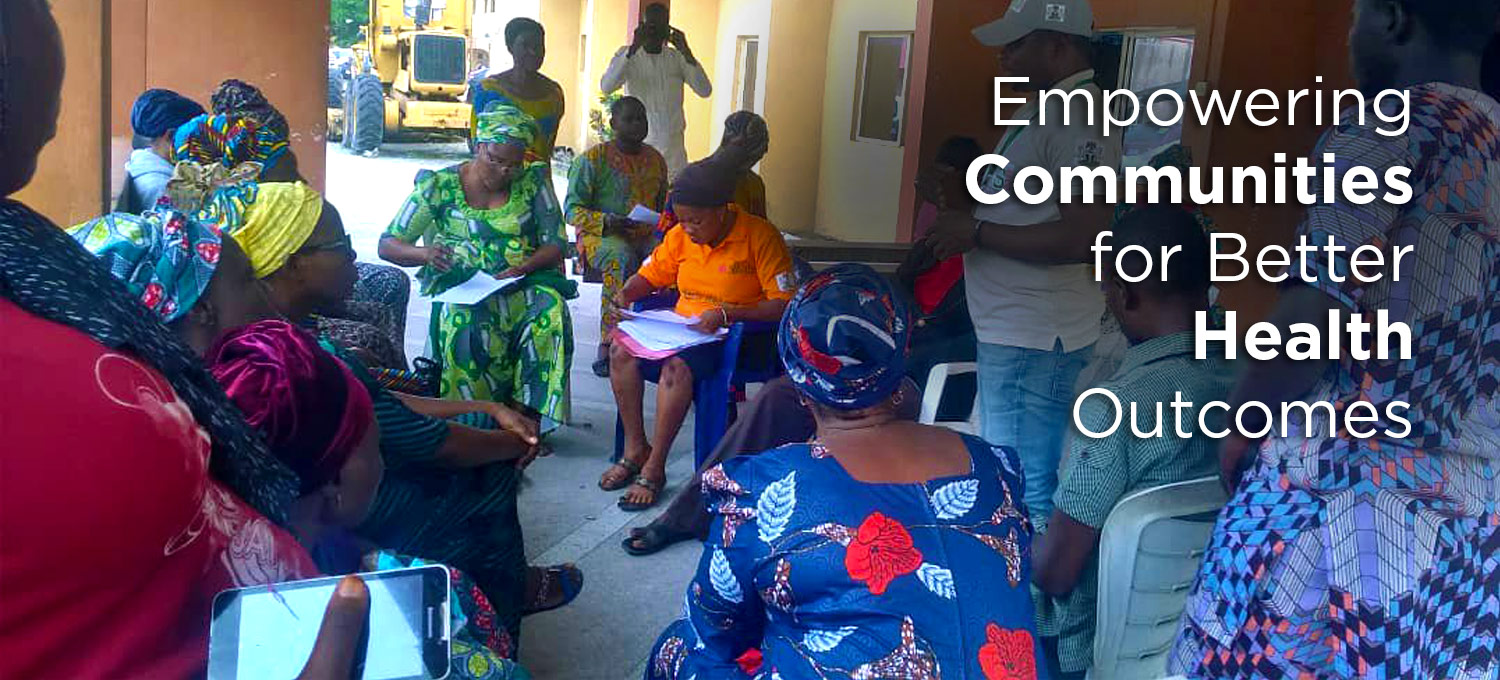Advanced Clinical Decision Support for Pediatric HIV Care
There are many challenges to accomplishing effective prevention, diagnosis, and treatment of HIV in children. Zambia is no exception: in 2018 barely 50% of children with HIV infection had been diagnosed. Most diagnosed children were receiving treatment, but of these, 46% were failing treatment. Altogether only 25% of children with HIV in Zambia were virally suppressed. The problem is especially great in children under 5 years of age and older adolescents.
Similar problems exist with respect to infants born to mothers with HIV. Exposed infants remain at risk of infection while breastfeeding, with no safe and acceptable alternative for most of them. Mothers need support and monitoring to ensure that antiretroviral therapy protects them and prevents transmission of the HIV virus to their infant. The exposed infant needs serial testing to rapidly diagnose HIV. Yet many mother-infant pairs were drifting out of care before the infant had weaned, leaving the infant and mother at risk.
Need for a Solution
Seeking ways to improve HIV care for children, Zambian pediatrician Jonas Mwale approached Ciheb Zambia Country Director Robb Sheneberger, M.D, and University of Maryland Pediatric Infectious Diseases Specialist Douglas Watson, M.D. (now at the Hospital for Sick Children/University of Toronto). That encounter led to a solution.
The Ciheb Zambia team proposed a clinical decision support system to guide clinicians through each step of care. The result was DelphiCare, developed by Dr. Watson with support from Ciheb’s Dr. Cassidy Claassen; Logiak, producer of tools for clinicians to write CDS software without coding; and D-tree International, specialists in implementing CDS systems in Africa. The tool was developed in consultation with the Zambian Ministry of Health and local experts in pediatric HIV care.
How it Works

Running off-line on a hand-held Android tablet, DelphiCare enables users to provide longitudinal, expert-level management of HIV-exposed infants and HIV-infected children. The app guides users through each step of the clinical visit, screening for illness, recommending tests, and interpreting results. It also screens for tuberculosis and advises on treatment; recommends drugs and dosages; guides counseling on adherence, disclosure, and nutrition; and recommends appropriate follow up. Treatment of mothers of exposed infants is also monitored.
Information is stored and retrieved at the next visit in order to guide care, and when cellular connectivity is available, data from the device is uploaded onto a program server. Data is then transferred to the national electronic health record.
The user interface is intuitive, minimizing training requirements. The DelphiCare team monitors activity on a system dashboard, pinpointing issues that can then be addressed with an individual user. Changes in national guidelines or local procedures are rapidly implemented with updates to the system.
Positive Feedback
 DelphiCare is currently being used at six clinics in Zambia’s Southern Province; the plan is to implement it at an additional 6-12 clinics over the next few months. Ciheb's Kennedy Sambambi, R.N. is coordinating DelphiCare implementation in Zambia’s Southern Province. He has been supporting pediatric HIV care in his home province for 15 years.
DelphiCare is currently being used at six clinics in Zambia’s Southern Province; the plan is to implement it at an additional 6-12 clinics over the next few months. Ciheb's Kennedy Sambambi, R.N. is coordinating DelphiCare implementation in Zambia’s Southern Province. He has been supporting pediatric HIV care in his home province for 15 years.
“Delphicare is coming in at the right time. Until now there has been no credible way of monitoring, especially exposed children,” he said. “They are lost to care along the way, and nothing is documented. For HIV infected children, we have always had issues of viremia due to underdosing and wrong drug combinations by inexperienced providers. Delphicare closes this gap!”
Implementing a new system challenges clinics, but users and clinic leadership have reacted positively to DelphiCare's advantages.
- "Now we have a tool that will give us a reason as to why a child seroconverted. It also is helping us to track the mother's adherence to treatment."
—Tonga Machenje, clinical officer, Shampande Clinic, Choma, Zambia - "At least we have something to use as point of care for children in MCH without referring to hard copy guidelines always."
—Allidah Njovu, maternal-child health nurse, Pemba Clinic, Pemba, Zambia - "I hope the pilot will be a success so that it rolls out to all the facilities. We have challenges especially in far flung areas where most of our staff are not trained in HIV management."
—Dr. Chisomo Shawa, District Health Director, Choma, Zambia
Ciheb is proposing to implement DelphiCare more broadly and will be developing modules for pregnant women with HIV infection and the general population of adults with HIV infection or tuberculosis. DelphiCare is supported under Ciheb’s SMACHT grant from the US Centers for Disease Control.


